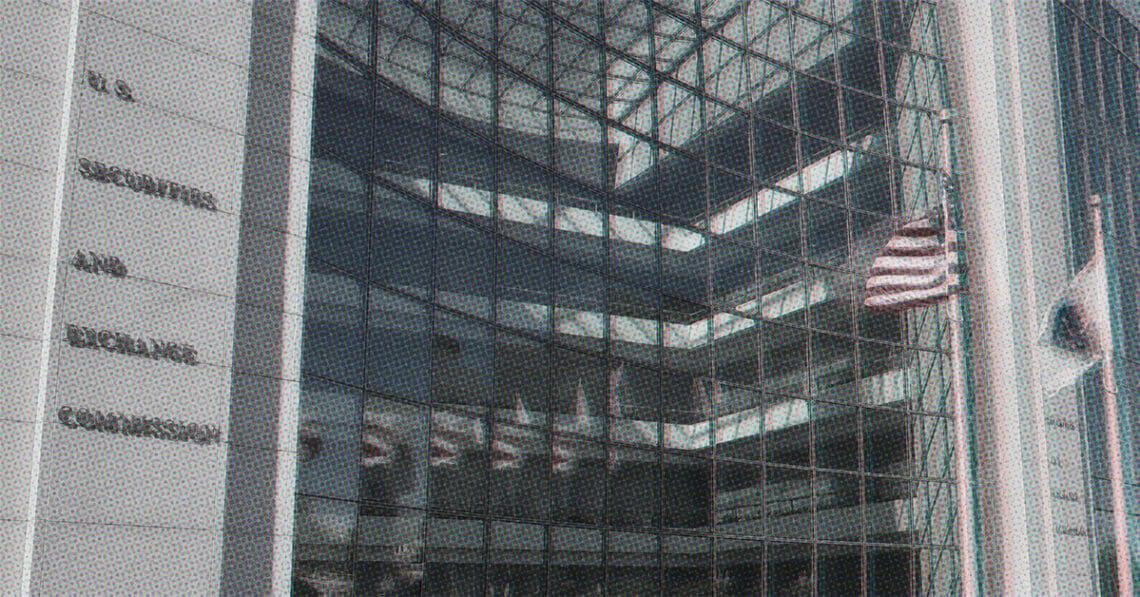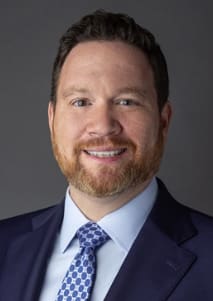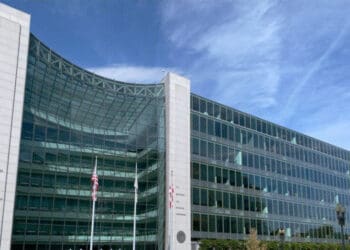For now, the U.S. Supreme Court’s decision in SEC v. Jarkesy applies only to SEC statutory fraud claims. But the court’s reasoning has the potential to be extended to proceedings before other federal agencies, and the court this term has expressed willingness to revisit principles of administrative law. A group from Sidley Austin takes a closer look at the case and its potential ripple effects.
The U.S. Supreme Court’s recent decision in SEC v. Jarkesy may create compliance opportunities and challenges for companies in highly regulated industries facing administrative enforcement proceedings. Media reports that Jarkesy has ended federal administrative enforcement are overblown.
Contrary to these reports, the court held that the SEC could no longer file civil penalty actions for alleged fraud actions before its own administrative law judges (ALJs) but instead must file such actions in federal court. Such penalty actions, in the court’s view, are the types of suits that create a right to a jury trial under the Seventh Amendment of the U.S. Constitution.
As a result, Jarkesy creates an opening to push back against federal agencies that heavily lean on ALJs for civil enforcement. On the other hand, administrative actions involving ALJs often provide companies the most efficient and least costly path toward resolving regulatory disputes with federal agencies. These competing considerations highlight some of the questions that Jarkesy raises, which will take years to resolve in the courts.
Background
The Dodd-Frank Act expanded the SEC’s ability to seek civil money penalties by giving it the option of proceeding before its ALJs in cases where penalties had not previously been available in that forum. A defendant who loses in front of the ALJ would still have the option to seek review from the commission and, if unsuccessful there, then judicial review, but the standard of review would be more deferential than if the matter had first gone before a federal judge.
In Jarkesy, the SEC relied on its authority under Dodd-Frank to bring an enforcement action seeking civil money penalties before its ALJs against George Jarkesy, an investment fund manager, and his investment firm, Patriot28, alleging violations of the anti-fraud provisions of federal securities laws. In bringing its enforcement action, the SEC sought $300,000 in civil penalties, as well as disgorgement, a cease-and-desist order, and industry and officer-and-director bars against Jarkesy.
In pursuing an enforcement action against Jarkesy, the SEC chose its in-house administrative forum in front of an ALJ. After concluding the administrative proceedings, the ALJ found Jarkesy liable, and Jarkesy petitioned for the commission to review. It took the SEC six years to affirm the decision. Jarkesy then petitioned for judicial review, and the Fifth Circuit held that the SEC’s decision to adjudicate anti-fraud claims where the commission seeks a civil penalty violated multiple constitutional provisions, including the Seventh Amendment right to a jury trial.
The Supreme Court affirmed, holding that the Seventh Amendment entitles defendants to a jury trial when the SEC seeks civil penalties for securities fraud, prohibiting the SEC from bringing such claims to an administrative tribunal without a jury.
The court’s decision centered on two key issues:
- First, the court examined whether the Seventh Amendment guarantees the right to a jury trial for “[s]uits at common law,” which the majority explained includes statutory claims that are “legal in nature.” To make this determination, the court considered both whether the cause of action resembles a common law cause of action and whether the remedy is the sort traditionally obtained in a court of law. Focusing on the remedies portion as “more important,” the majority found that seeking civil penalties was “all but dispositive” in determining the need for proceeding before an Article III judge. By emphasizing the remedies portion, the court also left open the possibility that its ruling could extend beyond cases charging civil fraud where monetary fines or penalties are sought. Citing Tull v. United States, a 1987 case under the Clean Water Act, the court held that civil penalties served as a form of monetary relief designed to “publish culpable individuals,” rather than making the victim whole. Punishing or deterring wrongdoing historically is a type of remedy at common law that could only be enforced in courts of law. The Jarkesy court noted that the size of the penalty depended on the culpability of the wrongdoer, not the size of the harm, and that the SEC would not be obligated to return any money to victims. As such, and given the similarity between federal securities fraud and common law fraud (despite some differences), the court confirmed the action was “legal in nature” and thus subject to the Seventh Amendment right to jury trial.
- Second, the Court considered whether the case fell within the “public rights” exception, which allows Congress to assign matters to an agency without a jury while still being consistent with the Seventh Amendment. The court recognized that while a “public rights” exception exists in certain historical instances (e.g., customs and tariffs, administration of public lands and granting of public benefits, such as payments to veterans, pensions and patent rights), matters concerning private rights may not be removed from Article III courts. Declining to define public rights any further, the court drew on its earlier analysis of suits at common law. The court then distinguished — but did not overrule for now — its prior decision in Atlas Roofing Co. v. Occupational Safety and Health Review Commission, which allowed civil penalty claims in administrative proceedings under the Occupational Safety and Health Act for violations of new and highly detailed safety regulations. The court held Atlas Roofing was not controlling because the claims there were “unknown to the common law” and therefore distinguishable from the fraud claims against Jarkesy.
Questions remain
Does Jarkesy invalidate the underlying federal laws that federal agencies seek to enforce?
No. Jarkesy means that the government cannot bring certain civil penalty claims before ALJs. As Jarkesy worked its way to the Supreme Court, the SEC stopped bringing most contested civil penalty claims before its ALJs, choosing instead to proceed in federal court to avoid the litigation risk from this case. (The court in Jarkesy did not expressly address whether its holding applies retroactively). In general, then, federal agencies can continue bringing enforcement actions but in federal court, rather than before ALJs. That could affect the volume of cases brought because of limited resources to prosecute claims in federal district court. Also, a limited number of federal laws provide for only administrative civil enforcement, such as the Environmental Protection Agency’s pesticide statute, leaving open the question of whether the agency would instead ramp up criminal enforcement. All these considerations illustrate why effective compliance programs remain essential.
Does a federal agency retain the authority to seek civil penalties administratively after Jarkesy?
The ability of federal agencies to seek civil penalties through ALJs in non-fraud cases will need to be resolved in the wake of Jarkesy, including by the numerous other agencies that have the statutory authority to seek administrative monetary penalties, such as the Federal Trade Commission, EPA and Food and Drug Administration.
The Supreme Court’s decision does not close the door on all claims for civil penalties being brought before an ALJ. The majority in Jarkesy did not overturn Atlas Roofing because the claims regarding worker protection best practices were “unknown to the common law.” In Atlas Roofing, the standards the agency enacted to ensure employers “comply with occupational safety and health standards” resembled a detailed building code rather than common law terms of art (e.g., a gravel wall needed to be sloped at 63 degrees). In Jarkesy, the SEC’s claims were based on fraudulent conduct that was “in the nature of” a common law suit incorporated into the securities statutory context. Between the two poles of the SEC in Jarkesy and OSHA in Atlas Roofing, the effects of Jarkesy on other agencies and claims remain to be decided.
Do federal enforcement actions brought in federal court require a jury to decide the case?
No. Jarkesy does not compel a company to seek a jury in a federal civil enforcement action seeking civil penalties. For those civil penalty actions that trigger a Seventh Amendment right to a jury trial, it would be up to the parties in the case to demand a jury trial. Agency practice in that area varies: For example, the SEC typically demands a jury trial, while EPA rarely does so. Absent such a demand, a federal trial judge would decide the case.
Can companies reach administrative settlements with a federal regulator even where there is a right to a jury trial under Jarkesy?
Companies may seek to reach an administrative resolution with a federal agency because doing so can be less expensive and time-consuming, instead of litigating in federal court or reaching a settlement in federal court. An example of that approach would be the U.S. Department of Transportation National Highway Traffic Safety Administration (NHTSA), which nearly always reaches administrative resolutions. Resolution of agency claims in the administrative forum may also avoid the involvement of the Justice Department, which sometimes acts on behalf of agencies like the EPA in federal court actions. For companies seeking to reach an administrative resolution, it would be important to determine whether an administrative settlement seeks relief other than civil penalties that does not implicate Jarkesy. And, even in civil penalty actions, it may be possible for a company to waive its right to a jury trial in federal court in order to reach an administrative settlement. The SEC has already begun seeking Jarkesy waivers from parties that intend to resolve investigations through settled administrative actions. A final complication would be faced by companies that have an administrative matter in the U.S. Court of Appeals for Fifth Circuit — Louisiana, Mississippi and Texas. The Fifth Circuit’s decision in Jarkesy held that there were other constitutional infirmities with the SEC’s administrative proceedings, and those separate holdings remain the law in that circuit.
Does Jarkesy invalidate state and local administrative proceedings involving civil penalties?
Jarkesy did not directly question state and local administrative proceedings that seek civil penalties. For example, the California Air Resources Board levies extensive civil penalties often in tandem with the EPA. The decision in Jarkesy may require both federal and state agencies to review their chosen methods of enforcement. While the Seventh Amendment right to a jury trial has not yet been applied to the states, Jarkesy signals that many longtime precedents may be questioned. In addition, several state constitutions provide rights to a jury trial similar to the U.S. Constitution. Furthermore, state courts can and often do interpret their constitutional provisions to provide even more protections than the federal Constitution. What form this will take following Jarkesy should continue to be monitored closely.




 Justin Savage
Justin Savage Ike Adams
Ike Adams Sophia E. Wallach
Sophia E. Wallach








